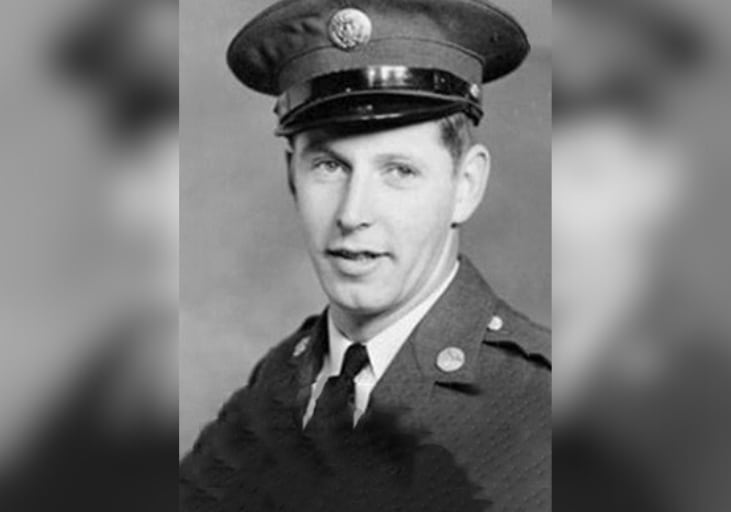Typical recovery from neck surgery: Plenty of rest.
Ranger recovery from neck surgery: Pull two people out of the swirling surf off a Florida beach.
Staff Sgt. Nickolas Clarke, an instructor with 6th Ranger Training Battalion at Camp Rudder, part of Eglin Air Force Base, had expected a relaxing day on the sand of Okaloosa Island on Oct. 8 when he "heard a lot of screaming," he said in a phone interview.
"There was yelling going on from out in the water," he said. "I heard the older couple sitting next to us saying, 'That guy is in trouble.' "
Clarke, who'd taken his mother-in-law (visiting from Germany) to see the local beach, jumped up to see a man struggling against the current, at least 75 yards off shore.
But Clarke wasn't the first person to attempt the rescue. And that led to more work for the 36-year-old recovering Ranger, who'd recently gone under the knife.
"There was another man in the water already that was a little bit closer to [the struggling man] than I was," Clarke said. "He was swimming in his direction ... and he went down, started getting sucked down by the waves."
Presented with two men shouting for help, Clarke reached the would-be rescuer first and pulled him back to shallow water. He turned to see an empty ocean, then saw his initial rescue target pop out from under the water, screaming.
"I was pretty much out of gas," Clarke said after struggling against heavy currents to reach the man. "I had to pull him up. He was going crazy, in a panic. He tried to grab me. I told him, 'Just calm down. Don't grab my neck. I'm going to get you out of here.' "
"I finally got him to a spot where I could just barely touch my feet" to the ocean floor, he said. "That's when the lifeguard showed up."
Exhausted, Clarke turned the rescue over to fast-arriving rescue professionals.
One local fire rescue team member asked whether he'd received the scar on his neck during the save. No, Clarke told him — that's from the surgery to replace a ruptured disk with a titanium plate, a move made necessary by injuries suffered in a parachute jump.
He also was asked about the "USMC" tattooed on his stomach. Clarke, who enlisted in the Marine Corps in 1997 and left as a sergeant four years later before a break in service and eventual switch to the Army, explained that he was no longer with the Corps and now stationed with the waterborne Ranger training at nearby Camp Rudder.
That led to some bystanders and rescue personnel emailing Eglin officials to praise Clarke's efforts. He's now been featured in local TV and newspaper reports.
"I didn't ask for any of this," said Clarke, who's made two war-zone deployments, one each to Iraq and Afghanistan. "I saw something happen, I saw a man with a serious problem, [and] the first thing I thought of ... it's the instinct to run toward the fight. It's what I've trained for."
Kevin Lilley is the features editor of Military Times.





